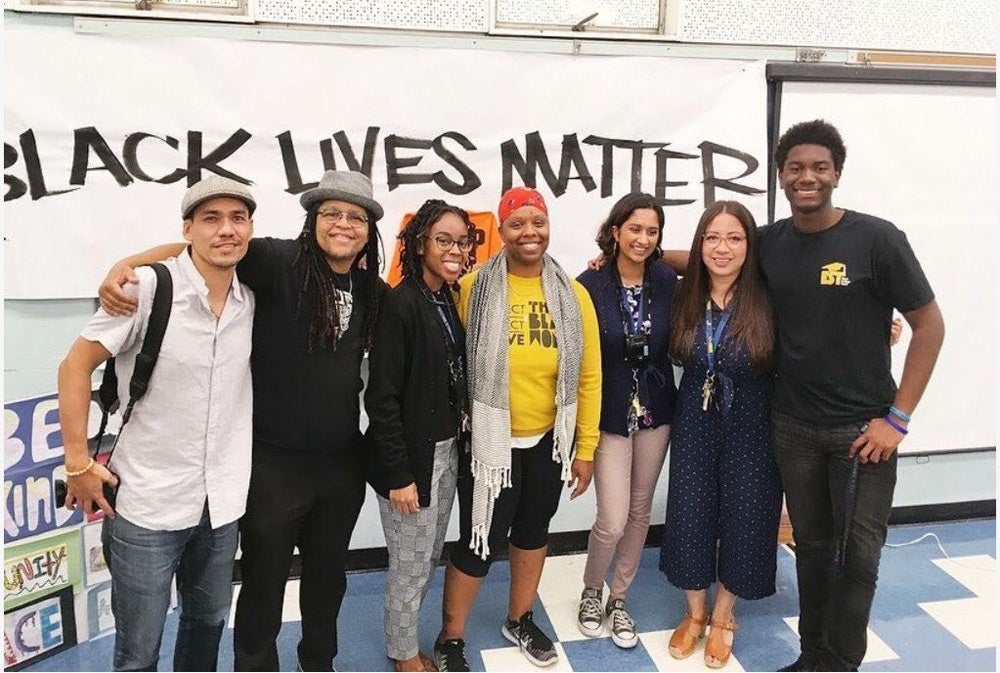The battle for racial justice stands at the core of the Mann UCLA Community School in South Los Angeles. Issues of racism, inequality and police violence have for too long plagued the South Los Angeles community surrounding the school. And given the events of the past year, from the killing by police of George Floyd, Breonna Taylor and others, to the racial inequities made so clear by the COVID-19 pandemic, the need to confront those issues has never been more important.
In recent months, teachers, administrators, students, families, UCLA researchers, and broader community members have come together to collectively examine how Mann-UCLA can serve as a model for local and national work towards racial justice in schools. The goal they say is to make Anti-Racism part of the school’s DNA. Over hundreds of hours, they have reimagined how they can sustain their work toward racial justice. The result is the establishment of the Mann-UCLA Anti-Racist Committee (ARC). The Committee will meet on a weekly basis to advance three key elements of the community school, school governance, collaborative learning, and student and family leadership.
“I am very excited to be a part of the Anti-Racist Committee because it means that we will really center anti-racist work at Mann UCLA Community School from this moment to generations beyond,” said committee co-director Marcus Van, a teacher at the school. “This is an amazing opportunity for students, teachers, UCLA partners, and parents to build the vision of just an equitable education for students and communities in and around Mann.”
To ensure racial justice is central to the school’s future decision-making, the School Governance Committee has recognized ARC as a formal governance body with specific bylaws and dedicated functions, and included an ARC representative as a voting member of the School Governance Committee (SCG). ARC members will guide SGC’s smaller initiative groups dedicated to key equity issues, such as building English Learner student and family advocacy, supporting student leadership and activism, and improving socioemotional support for students.
The Anti-Racist Committee is committed to a process of continuous improvement and learning and will work to identify clear outcome goals, design interventions that leverage the collective assets of members of the school community, and foster the continuous refinement of practices necessary to the fulfillment of racial justice work. Research-practice partnerships will also play a significant role.
The organizers of the ARC recognize that racial justice in schools cannot be achieved without the leadership and engagement of students and families of color and will work to elevate their voices in shaping their collective work through a democratic process.
Together they will explore how the committee can play a role in shaping the ways schools engage in racial justice and surface processes and structures that can serve as powerful tools to advance social justice in schools.
“The work of the ARC gets to the core of the partnership between the UCLA School of Education and Information Studies and Mann UCLA Community School,” said Ung-Sang Lee, a postdoctoral fellow at UC San Diego who has been working with UCLA Mann. We are both institutions with deep historical commitments to racial justice, and we view this work as laying the foundation for engaging in racial justice work together for decades to come,”
Learn more about the ARC effort at Mann UCLA Community School in a blog post by Marcus Van and Ung-Sang Albert Lee for the UCLA Center for Community Schooling.
